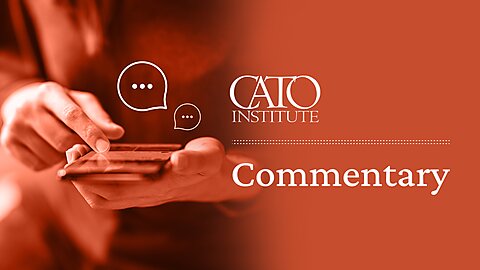Christian Kruse and Norbert Michel
It’s been five years since the Securities and Exchange Commission (SEC) attempted to “harmonize” the rules governing public and private securities markets. Yet, the reform’s change to the accredited investor standard has fallen short on its goal of broadening access to private markets.
The accredited investor standard dictates which Americans are considered “financially sophisticated” by the government, thus allowing them to participate in private securities markets. Up until 2020, the standard was enforced solely by a wealth test—only those with an income above $200,000 ($300,000 if married) or a net worth of $1 million (excluding a primary residence) could be considered accredited.
But wealth and income are both poor proxies for financial sophistication.
There are many reasons someone can amass wealth: retirement savings, windfalls, or large inheritances, none of which ensure an investor is financially sophisticated. Likewise, income does not ensure an investor is sophisticated. On average, physicians and surgeons, airline pilots and copilots, and nurse anesthetists earn over $200,000. While important and lucrative, these careers do not provide a financial education. These examples demonstrate a serious flaw of the accredited investor standard. Critics have been rightfully challenging the wealth- and income-based approach since the 1980s.
Over the subsequent decades, the private market has outgrown the public market. In 2024, the private market grew by over $3 trillion, while the public market grew by $2.03 trillion. Even though the private market is materially larger than is the public one, very few Americans are allowed to access it. The accredited investor standard allows only 12.6 percent of the population to invest in these private securities, keeping the other 87 percent of Americans out of a rapidly expanding market. Continuing to restrict investors from a market that is materially larger than the public market is increasingly difficult to justify. Private markets should not be a domain only reserved for the wealthy.
The 2020 rule change tried to solve this issue by making individuals who hold professional licenses—such as Series 7 and 65 trading licenses—accredited. While including professional certifications was a great first step, the rule’s scope was far too narrow, and it failed to increase the pool of accredited investors. Since 2020, the percentage of accredited investors relying solely on their professional certification was just 1 percent. This share is roughly 0.01 percent of the total US population—hardly a successful expansion.
Can the Standard be Saved? Should It Be?
The SEC’s Small Business Capital Formation Advisory Committee has made many suggestions on how to broaden private market access, including amending the accredited investor standard to adjust for regional cost-of-living differences. For instance, a person making $200,000 (the threshold to become accredited) in Manhattan would only need $90,166 (58 percent less income) to achieve a similar standard of living in Philadelphia. Although it could be seen as an improvement, this proposal still suffers from the standard’s misplaced wealth test to determine sophistication.
Ultimately, the SEC felt that expanding investor access in this way wasn’t worth it. Commenting on the proposal, the SEC stated that the costs “do not weigh in favor of adding such geography-specific financial thresholds.” Instead, the SEC opted to allow those with professional certifications to become accredited.
Basing the accredited investor standard on certification exams is better than basing it on wealth, but it still has its failings. At the end of the day, it is merely another arbitrary line the government can draw in the sand for who can and cannot participate. And it leads to the question: Should the accredited investor standard be saved?
True reform requires more than just tinkering with the type of test. Only a framework that either eliminates the accredited investor standard or allows individuals to “opt-out” of it, similar to the approach in the Accredited Investor Self-Certification Act, will truly restore financial freedom to Americans.
Opting out would allow individuals to waive their protections as nonaccredited investors to gain access to private security markets. This approach could even provide the ability to invest in other exempt offerings that include the accredited investor standard. As envisioned in the Accredited Investor Self-Certification Act, the opt-out would only require the SEC to draft a statement that nonaccredited investors can sign to waive their investor protections. Such an opt-out framework has already been developed and offers the most principled way to allow Americans true freedom and domain over their investment decisions.
The accredited investor standard continues to exclude most Americans along arbitrary lines of wealth and knowledge. While the SEC tried in 2020 to increase investor access, piecemeal adjustments to the accredited investor standard just haven’t produced results. If Congress or the SEC truly want individuals to have more opportunities to become wealthier, they should stop using the accredited investor standard to discriminate against less-wealthy investors and allow investors to make financial decisions on their own terms.

